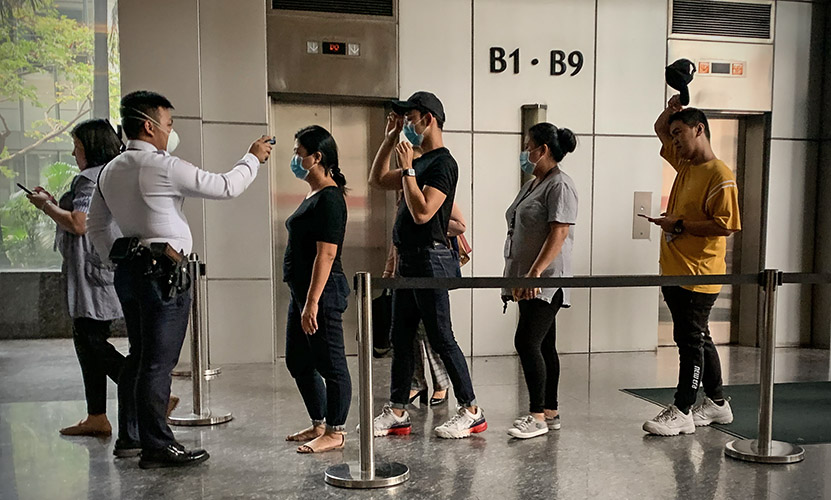Senator Win Gatchalian is urging the government to train and hire K to 12 graduates to meet the country’s demands for contact tracers to fight COVID-19.

Though the K to 12 program promises to boost the employability of its graduates, Gatchalian emphasized that the economic crisis resulting from the pandemic made employment opportunities dimmer for these new graduates who are also seeking jobs.
Hiring these graduates as contact tracers, however, will be a boost to tracking down and isolating carriers of the virus, especially now that lockdown measures are being gradually lifted, Gatchalian explained. At the same time, these job opportunities will give them relief from the economic brunt of COVID-19, he added.
Last May, the Department of Health (DOH) announced that 94,000 contact tracers are needed to meet the ideal ratio of one per 800 people. According to the President’s 14th report to Congress on the implementation of the Bayanihan to Heal As One Act (Republic Act 11469), there are currently 54,183 members of contact tracing teams nationwide.
While the DOH requires contract tracers to be an allied medical professional or at least a graduate of an allied medical course, Gatchalian called for greater flexibility to accommodate K to 12 graduates. He cited the case of the United States, where contact tracers are not necessarily college degree holders.
“We will hit two birds with one stone: we give jobs to young people who are vulnerable at this time and we boost our efforts to contain the spread of the virus,” said Gatchalian, Chairman of the Senate Committee on Basic Education, Arts and Culture.
Because of school closures, the collapse of businesses, the loss of job opportunities that followed, and the emergence of obstacles to finding work, young people (15-24) are being affected disproportionately by the COVID-19 pandemic, the International Labour Organization (ILO) said last May.
The Philippine Statistics Authority’s January 2020 Labor Force Survey revealed that 16.9 percent of the youth population (15-24) are not in education, employment, and training. It went up to 25.3 percent by April 2020.
The ILO also identified testing and tracing (T&T) as a potential employment opportunity that can be targeted for young people and other groups affected by the pandemic.
“Kung bibigyan natin ng trabaho bilang contact tracers ang ating mga kabataan, kabilang na ang ating mga K to 12 graduates, hindi lamang natin sila mabibigyan ng solusyon sa mga hamong kinakaharap nila. Magiging bahagi rin sila ng mga solusyon upang makabangon ang ating bansa mula sa pinsalang dulot ng COVID-19,” he added.


